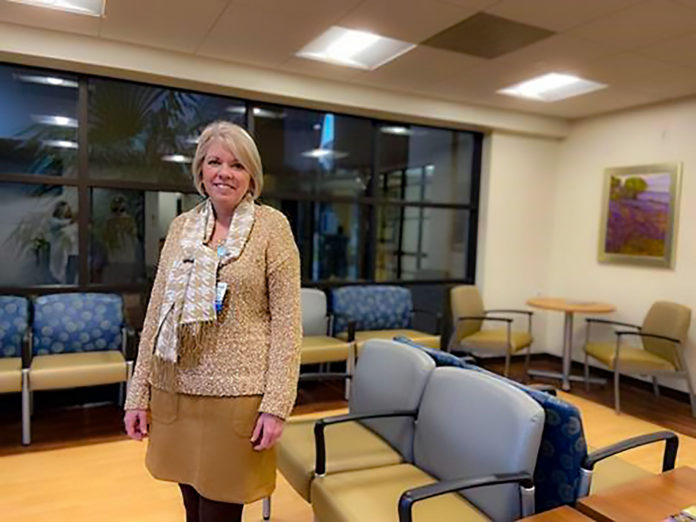The need for chronic disease treatment for uninsured patients has proven so great at Texas Health Harris Methodist Hospital Hurst-Euless-Bedford that the Healthy Education Lifestyle Program has expanded drastically to accommodate many more, the hospital said in a news release.
HELP, which started at Texas Health HEB 16 months ago in one small room, had 39 patients from August to December 2018. By the end of 2019, the number had ballooned to more than 100, said Laura Burnett, M.S.N., R.N., CPXP, manager, patient and family center care.
“Most of our patients are working at minimum wage jobs or self-employed,” Burnett said. “It could be any one of us.”
HELP treats patients with diabetes, hypertension, congestive heart failure and high cholesterol.
Texas Health Harris Methodist Hospital Azle was the first in Texas Health Resources to start a HELP program. Since the Azle program opened in 2013, HELP clinics have expanded to nine wholly owned campuses. The system also is piloting the program in mobile health units. Texas Health Arlington Memorial Hospital and Texas Health Presbyterian Hospital Dallas have similar programs.
“We’re seeing more than 600 patients, and across the board seeing a reduction in those patients in the Emergency Department for chronic disease management,” said Jamie Judd, M.B.A., director, Community Health Improvement. “We’re providing a consistent place for comprehensive care. We have employees who have a heart for this population.”
Giving patients an opportunity for early and ongoing consistent treatment outside of emergency care is a proved tactic to improve their health overall and greatly reduce the cost of health care delivery.
There is no one single patient demographic that the clinic sees, said Anna Rabinovich, D.N.P, APRN, ANP-BC, CDE. “We have people with zero education, and we have people with master’s degrees,” Rabinovich said.
Many patients have immigrated to the United States with many patients who are natives of Africa, France and members of the nearby Tongan community. Burnett said the clinic also treats undocumented workers, which fills a big gap in health care in the area.
Only one patient from the clinic has returned to the hospital for emergency room care and none have had a hospital admission related to their chronic disease, she said.
Federal funding for the clinic is in place through 2022. A goal for this year is to reach new patients, by visiting large employers who have work forces earning minimum wage who can’t afford health insurance, she said.
“I’ve been in health care for 28 years,” Burnett said. “This feels good. It feels right. It’s very rewarding.”
– FWBP Staff






